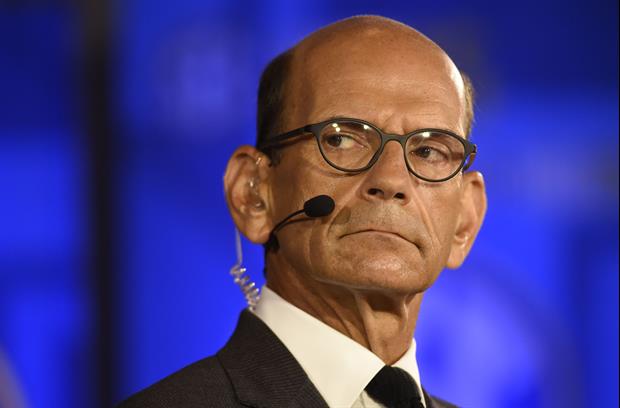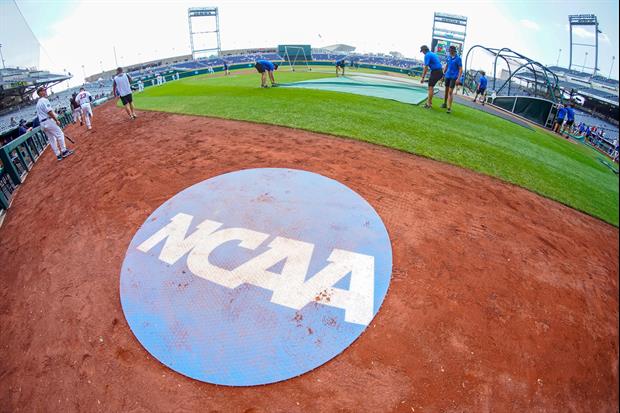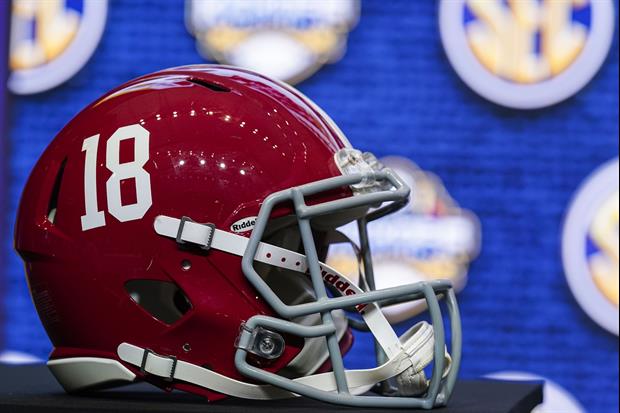Cajun Cricket
| Favorite team: | LSU |
| Location: | Tennessee |
| Biography: | |
| Interests: | Faith, Family, and Red Wine |
| Occupation: | Retired |
| Number of Posts: | 220 |
| Registered on: | 3/12/2016 |
| Online Status: | Not Online |
Recent Posts
Message
re: Better to be affluent in an impoverished area or lower level in an affluent area?
Posted by Cajun Cricket on 2/15/26 at 1:12 pm to weagle1999
The ole Big dog in a little puddle or a little dog in a big puddle. If I’m the same dog, give me the big puddle.
re: Have You Noticed Changes to the Student Body on LSU’s Campus?
Posted by Cajun Cricket on 2/1/26 at 10:27 am to Joshjrn
The reality is that your graph shows a racial change in the makeup of a growing student body.
But schools should be about academics and not demographics …. So any standardized testing data over this same period?
But schools should be about academics and not demographics …. So any standardized testing data over this same period?
re: Halloween
Posted by Cajun Cricket on 1/16/26 at 3:33 pm to VivaZapata27
I tend to agree … have an upvote!
re: I just want to Thank IPAD for all the hard work he has done over the past week and a half!
Posted by Cajun Cricket on 1/14/26 at 7:23 am to lsutiger2
iPad was definitely not on BK’s prior admin staff, he knows much about what was going on.
re: Would you rather live in Atlanta, Charlotte, or Nashville
Posted by Cajun Cricket on 12/5/25 at 10:40 am to ClemsonKitten
Franklin, TN is a very nice area to live. Conservative, at least for now. Middle Tennessee has milder seasons compared to the north. Spring storms will get your attention, but overall it’s a nice area.
re: Jersey man unjustly arrested after crashing Delorian loaded with cocaine
Posted by Cajun Cricket on 11/13/25 at 7:52 am to THRILLHO
He’s actually from the 70’s … he just bounces to 2025 to deal because he makes more money
Buy ‘70’s, sell ‘25, profit.
Buy ‘70’s, sell ‘25, profit.
re: What happened to the black bird flocks
Posted by Cajun Cricket on 8/27/25 at 7:56 pm to Da Sheik
Desegregation.
re: What’s the craziest parlay you’ve ever hit?
Posted by Cajun Cricket on 8/17/25 at 1:57 pm to Decisions
Back in the early 80’s our frat would get our betting sheets on wednesday from the local bookie. One weekend I put $10 on a 10 game parlay. I was 9 for 9 going into the late Hawaii game. If they cover, I was going to win something like $500-$600. Hedging was not an option. So, we went out to Murphys and celebrated like the rainbows could do no wrong. Woke up the next morning pretty hungover, checked the scores, and let’s just say …. I celebrated too early.
re: Need advice using non-retirement brokerage funds to potentially purchase home
Posted by Cajun Cricket on 6/25/25 at 2:12 pm to Civildawg
Everyone’s situation is different.
I personally would sell the assets in the brokerage account in the most tax efficient manner and pay cash for the home and improvements. Also save your receipts for the capital improvements to raise your basis for when you sell down the road.
Also, just my 2 cents, but if I was the home seller, I wouldn’t enter into a contract with a Home Sale Contingency.
Good luck!
I personally would sell the assets in the brokerage account in the most tax efficient manner and pay cash for the home and improvements. Also save your receipts for the capital improvements to raise your basis for when you sell down the road.
Also, just my 2 cents, but if I was the home seller, I wouldn’t enter into a contract with a Home Sale Contingency.
Good luck!
re: Nashville Tiger Fans
Posted by Cajun Cricket on 6/20/25 at 3:24 pm to CAD703X
Yeah, Cajun steamer has some good food too.
I read his post more as showing a kid how effective TD is with helping posters. I was just tossing out recs so he could show 3 replies to that kid within 10 minutes. If he really wanted to find some good family sports bars near him he could just use yelp. They should all have the game in at least one tv.
I read his post more as showing a kid how effective TD is with helping posters. I was just tossing out recs so he could show 3 replies to that kid within 10 minutes. If he really wanted to find some good family sports bars near him he could just use yelp. They should all have the game in at least one tv.
re: Nashville Tiger Fans
Posted by Cajun Cricket on 6/20/25 at 3:20 pm to CAD703X
Yeah, Cajun steamer has some good food too.
I read his post more as showing a kid how effective TD is with helping posters. I was just tossing out recs so he could show 3 replies to that kid within 10 minutes. If he really wanted to find some good family sports bars near him he could just use yelp. They should all have the game in at least one tv.
I read his post more as showing a kid how effective TD is with helping posters. I was just tossing out recs so he could show 3 replies to that kid within 10 minutes. If he really wanted to find some good family sports bars near him he could just use yelp. They should all have the game in at least one tv.
re: Nashville Tiger Fans
Posted by Cajun Cricket on 6/20/25 at 2:36 pm to jscrims
I’m not familiar with north of the airport. However Gumbo Bros in the gulch or White alligator in the Franklin factory. These are more grab a bite to eat and watch rather than watch the entire game.
re: Vegas Strip Shooting
Posted by Cajun Cricket on 6/9/25 at 5:28 am to Bama and Beer
The shooter walks in front of the camera at the very beginning of the video.
Fair Trade is much more comprehensive than just ‘tariffs’.
Posted by Cajun Cricket on 4/7/25 at 9:05 am
The Double Standard on Trade: Tariffs vs. VATs
TLDR: don’t read it if it’s not important to you.
A fierce debate rages in economic circles over tariffs—taxes imposed on imported goods that are frequently criticized for raising consumer prices and causing inflation.
Free trade advocates often argue that tariffs are inherently harmful, increasing costs for consumers while failing to protect domestic industries in a meaningful way.
However, a curious contradiction emerges when the conversation shifts to Value-Added Taxes (VATs)—a form of taxation used by many of America’s top trading partners, including the European Union and China.
Unlike tariffs, VATs are not just accepted by free traders—they are often praised as an effective and efficient tax system. But in reality, VATs disadvantage American exports far more than tariffs do and play a significant role in distorting global trade.
So why do global economists and policymakers rush to condemn tariffs but remain silent on VATs? The answer lies in the way VATs are structured, creating an uneven playing field that punishes American manufacturers while favoring export-driven economies abroad.
How VATs Put the U.S. at a Disadvantage
A VAT is a consumption tax imposed on goods at each stage of the supply chain, from raw materials to the final retail sale. Unlike sales taxes in the U.S., which are charged only at the final point of sale, VATs embed additional costs throughout the entire production process—a cost that ultimately gets passed on to consumers.
For American businesses selling goods overseas, VATs function as an import tax, raising the final retail price of U.S. products in foreign markets. For example:
•In the European Union (EU), VAT rates vary, with Hungary imposing the highest at 27%, while Germany’s standard VAT rate is 19%.
•China applies a tiered VAT system, with a standard rate of 13%, while certain industries such as transportation and financial services enjoy reduced rates of 9% and 6%.
•When an American product enters these markets, these VATs are added on top of the sales price, making U.S. goods more expensive compared to locally produced alternatives.
The real kicker? Many countries that use VATs exempt their own exporters by rebating the VAT when products are sold abroad. This means foreign competitors receive a tax break when selling internationally, while U.S. goods are taxed upon entry into their markets.
VATs Are More Harmful Than Tariffs—So Why the Hypocrisy?
Despite their clear disadvantages for American exports, VATs rarely receive the same level of scrutiny as tariffs. In fact, global trade organizations and free-market economists often praise VATs, arguing that they are a fair and efficient way to collect government revenue.
However, their real effect is the opposite of free trade—they distort global markets and encourage countries to prioritize exports over domestic consumption.
Unlike tariffs, which target specific imports, VATs apply to nearly all goods and services, creating a far broader inflationary impact. This means that while a tariff may raise prices on select items, a VAT increases costs across the entire economy—from basic necessities like food and clothing to high-end manufactured goods like cars and appliances.
Trump’s Tariff Strategy: A Response to Unfair Trade Practices
During his presidency, Donald Trump championed tariffs as a way to counterbalance foreign economic policies that harm American industries. Critics claimed his approach would spark a trade war, but Trump argued that tariffs were necessary to level the playing field against countries that manipulate trade policies to their advantage.
In contrast, current free-trade advocates argue that tariffs create inflationary pressures and hurt American consumers. Yet they ignore the fact that VATs do the same thing on a much larger scale—only in a way that benefits foreign exporters at America’s expense.
If tariffs are to be criticized as harmful because they raise consumer prices, then VATs deserve the same level of condemnation. Yet, the mainstream economic consensus remains silent, choosing instead to promote a system that protects foreign industries while leaving U.S. manufacturers at a disadvantage.
The Bottom Line: America Must Fight Fire with Fire
The current global trade system is not a model of true free-market competition—it is a system rigged in favor of export-driven economies that use VATs as a form of hidden protectionism.
If the U.S. hopes to compete on equal footing, it must be willing to use tariffs strategically to counterbalance the effects of VATs.
Rather than blindly accepting economic dogma that dismisses tariffs as harmful, policymakers must recognize the reality that VATs have already turned global trade into a one-sided battle.
Until the playing field is leveled, the United States must be prepared to respond in kind.
Source Breitbart
TLDR: don’t read it if it’s not important to you.
A fierce debate rages in economic circles over tariffs—taxes imposed on imported goods that are frequently criticized for raising consumer prices and causing inflation.
Free trade advocates often argue that tariffs are inherently harmful, increasing costs for consumers while failing to protect domestic industries in a meaningful way.
However, a curious contradiction emerges when the conversation shifts to Value-Added Taxes (VATs)—a form of taxation used by many of America’s top trading partners, including the European Union and China.
Unlike tariffs, VATs are not just accepted by free traders—they are often praised as an effective and efficient tax system. But in reality, VATs disadvantage American exports far more than tariffs do and play a significant role in distorting global trade.
So why do global economists and policymakers rush to condemn tariffs but remain silent on VATs? The answer lies in the way VATs are structured, creating an uneven playing field that punishes American manufacturers while favoring export-driven economies abroad.
How VATs Put the U.S. at a Disadvantage
A VAT is a consumption tax imposed on goods at each stage of the supply chain, from raw materials to the final retail sale. Unlike sales taxes in the U.S., which are charged only at the final point of sale, VATs embed additional costs throughout the entire production process—a cost that ultimately gets passed on to consumers.
For American businesses selling goods overseas, VATs function as an import tax, raising the final retail price of U.S. products in foreign markets. For example:
•In the European Union (EU), VAT rates vary, with Hungary imposing the highest at 27%, while Germany’s standard VAT rate is 19%.
•China applies a tiered VAT system, with a standard rate of 13%, while certain industries such as transportation and financial services enjoy reduced rates of 9% and 6%.
•When an American product enters these markets, these VATs are added on top of the sales price, making U.S. goods more expensive compared to locally produced alternatives.
The real kicker? Many countries that use VATs exempt their own exporters by rebating the VAT when products are sold abroad. This means foreign competitors receive a tax break when selling internationally, while U.S. goods are taxed upon entry into their markets.
VATs Are More Harmful Than Tariffs—So Why the Hypocrisy?
Despite their clear disadvantages for American exports, VATs rarely receive the same level of scrutiny as tariffs. In fact, global trade organizations and free-market economists often praise VATs, arguing that they are a fair and efficient way to collect government revenue.
However, their real effect is the opposite of free trade—they distort global markets and encourage countries to prioritize exports over domestic consumption.
Unlike tariffs, which target specific imports, VATs apply to nearly all goods and services, creating a far broader inflationary impact. This means that while a tariff may raise prices on select items, a VAT increases costs across the entire economy—from basic necessities like food and clothing to high-end manufactured goods like cars and appliances.
Trump’s Tariff Strategy: A Response to Unfair Trade Practices
During his presidency, Donald Trump championed tariffs as a way to counterbalance foreign economic policies that harm American industries. Critics claimed his approach would spark a trade war, but Trump argued that tariffs were necessary to level the playing field against countries that manipulate trade policies to their advantage.
In contrast, current free-trade advocates argue that tariffs create inflationary pressures and hurt American consumers. Yet they ignore the fact that VATs do the same thing on a much larger scale—only in a way that benefits foreign exporters at America’s expense.
If tariffs are to be criticized as harmful because they raise consumer prices, then VATs deserve the same level of condemnation. Yet, the mainstream economic consensus remains silent, choosing instead to promote a system that protects foreign industries while leaving U.S. manufacturers at a disadvantage.
The Bottom Line: America Must Fight Fire with Fire
The current global trade system is not a model of true free-market competition—it is a system rigged in favor of export-driven economies that use VATs as a form of hidden protectionism.
If the U.S. hopes to compete on equal footing, it must be willing to use tariffs strategically to counterbalance the effects of VATs.
Rather than blindly accepting economic dogma that dismisses tariffs as harmful, policymakers must recognize the reality that VATs have already turned global trade into a one-sided battle.
Until the playing field is leveled, the United States must be prepared to respond in kind.
Source Breitbart
re: TRUMP ADMIN. Considers Allowing Higher Taxes On The Rich: AXIOS
Posted by Cajun Cricket on 3/28/25 at 2:15 pm to Grumpy Nemesis
Retarded?
You realize that the tax brackets are percentages and not a dollar amounts, right?
So someone that has a taxable income of $5 million vs $0.6 million pays significantly more in taxes right?
Maybe you do realize that though and you just believe that our progressive rates should extend up to 100% and our government should set the max limit on what a person can take home.
You realize that the tax brackets are percentages and not a dollar amounts, right?
So someone that has a taxable income of $5 million vs $0.6 million pays significantly more in taxes right?
Maybe you do realize that though and you just believe that our progressive rates should extend up to 100% and our government should set the max limit on what a person can take home.
re: "Pump" - as in giving someone a ride home on the handlebars of your bike
Posted by Cajun Cricket on 3/27/25 at 4:58 pm to HoopyD
We used that term in my neighborhood in Lafayette back in the 70’s … man, I haven’t heard that term since.
re: Leopard walks right into a Lion
Posted by Cajun Cricket on 2/16/25 at 6:31 pm to hikingfan
Battle at Kruger (Lions, water buffs, and crocs)
Water buffalo walks into a lion who then walks into a croc who walks into lion who both walk into a water buffalo … or something like that …. oh, and some dude walked into all of this happening and got it on camera.
Water buffalo walks into a lion who then walks into a croc who walks into lion who both walk into a water buffalo … or something like that …. oh, and some dude walked into all of this happening and got it on camera.
re: The Senate is about to vote for Tulsi Gabbard to advance
Posted by Cajun Cricket on 2/10/25 at 5:50 pm to pwejr88
I believe the process is:
1. Nominate
2. Committee vote to send to senate
3. Senate vote to hear debate
4. Senate vote to confirm
We just had #3
1. Nominate
2. Committee vote to send to senate
3. Senate vote to hear debate
4. Senate vote to confirm
We just had #3
re: Zelensky Claims Ukraine has only received 75 Billion of the 177 Billion Promised
Posted by Cajun Cricket on 2/2/25 at 1:45 pm to John Barron
“I don’t know where all this money is?”
Maybe it went to a vineyard in Italy?
Maybe it went to a vineyard in Italy?
re: How do I convince my parents (specifically my mom) that Israel is not some great ally
Posted by Cajun Cricket on 10/22/24 at 10:49 am to Hawgnsincebirth55
Would the USA, or the world for that matter, be better or worse off if Israel was wiped out and displaced by the surrounding Middle Eastern countries?
There in-lies your answer.
There in-lies your answer.
re: "The climate crisis"!
Posted by Cajun Cricket on 8/14/24 at 8:52 am to Robin Masters
Here is an article on urban heat. Just like everything else, the politicians and media use the fact our society is too lazy to think for itself, they manipulate it into fitting their narrative …
Reuters: urban heat
Reuters: urban heat
Popular
 0
0












